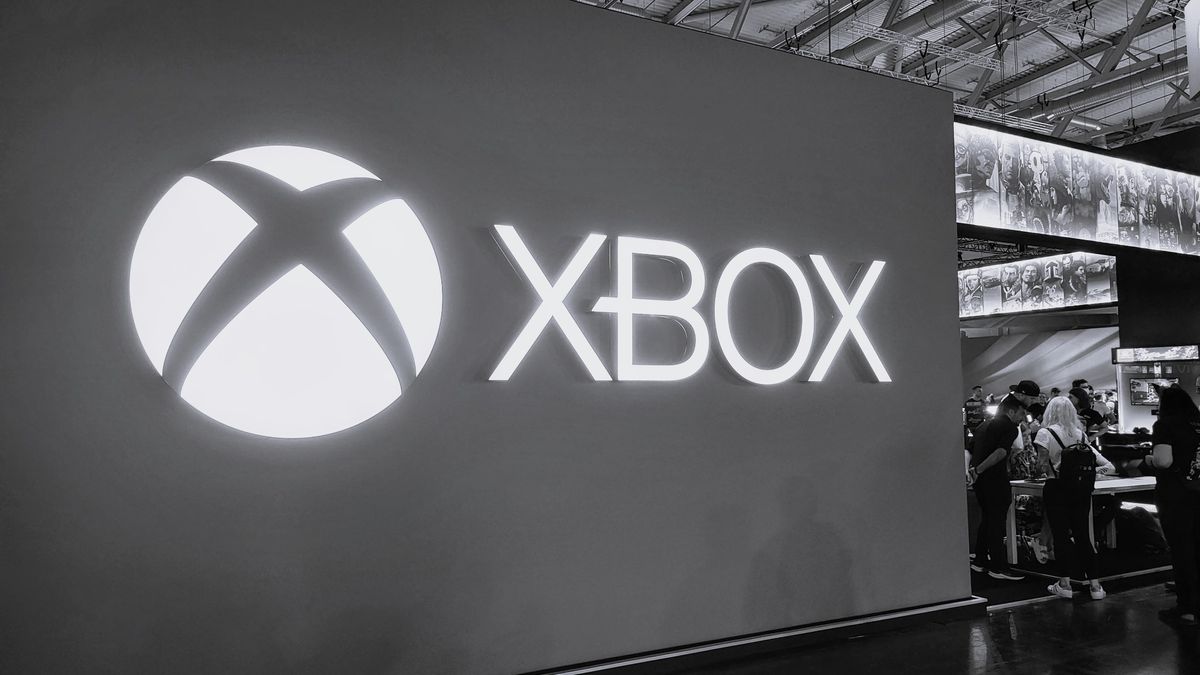Gai kai has gone no where
Gaikai and Onlive were both acquired by Sony / PlayStation. If they went nowhere it's because Sony squandered the technology and market for it.
Gai kai has gone no where

 www.windowscentral.com
www.windowscentral.com
Some multiplayer content sure , I don't recall single player content being locked away behind a marketing dealYou mean like Destiny before Sony bought Bungie? Or a bunch of other 3rd party games? This has been done before and by both parties.
strike missions were lockedSome multiplayer content sure , I don't recall single player content being locked away behind a marketing deal
Gaikai and Onlive were both acquired by Sony / PlayStation. If they went nowhere it's because Sony squandered the technology and market for it.
My assumption is that Ms will limit any further growth in terms of the UK. If a project can be done else where it will be ramped up else where only things that absolutely need to be done in UK will still get done. MS will also just buy up companies that don't have a footprint in the UK. Some deals may even be done with said purchased company having to close or relocate developers before the purchase is made thus avoiding UK regulation.Article on CMA, and the "careful what you wish for" aspect of it.

Why Sony could live to regret getting the Xbox Activision Blizzard deal blocked
Some regulators seem convinced Sony is in peril.www.windowscentral.com
The message regulators could end up sending here is "do business like Sony." While telling Activision employees, "no, you don't deserve better." It also tells fans of Activision's back catalog to accept the endless cycle of Call of Duty, Call of Duty, Call of Duty, to keep the money coming. It suggests little hope for Starcraft, Guitar Hero, Prototype, or other classic franchises to return.Perhaps most egregiously of all, the CMA seems hellbent on preventing consumers from getting a better deal with Xbox Game Pass — despite the fact that's the body's entire reason for existing. The CMA says PC and Xbox gamers should have to pay $70 for Call of Duty instead of $10. And why? Simply because the market leader opted out of competing. It amounts to a dereliction of duty at best, but that seems to be par for the course every time a government body takes even the vaguest interest in the video game industry.But hey, if that's what regulators want, Microsoft might play its game. If Microsoft is forced to compete on Sony's terms, it could be a world Sony may find itself regretful to be in.
I wasn't aware there was a single player portion of destinystrike missions were locked
Gai kai has gone no where
Sony also bought up on live patents too. They basicly ate 80% of the streaming market a decade ago so they themselves could enter it and then do nothing.Sony bought Gaikai a decade ago. PSNow is presumably it's bastard offspring. If you think XClouds gone nowhere too then I guess I 'll crawl back to my pedant hole.
Edit: Damnit, others beat me to it!
That would be for Microsoft to answer. Being able to offer something the competition cannot will boost appeal, I don't see anything about this process that calls that into question.I would then ask what the value of an acquisition is if not to take advantage of both the talent and the IP. Unless Sony has completely changed their trajectory of how they do business, exclusivity is still a very big part of platform selection.
If you cannot see why half a dozen regulators around the world need assess this acquisition, I don't know what to tell you. It is accepted accepted globally by all post-industrialised economies, that too much industry consolidation is a bad for competition and the counter to that is regulating acquisitions.I don't see why regulators need to get involved here, stopping industry consolidation for the sake of allowing other competitors in is borderline virtue signaling like they are doing their job, but most start ups in the gaming space have largely died irrelevant of industry consolidation.
noted: It should be clear that Geforce now has a free option allowing you to play up to 1 hour at a time. That's a very different model than the one that MS has proposed.If you cannot see why half a dozen regulators around the world need assess this acquisition, I don't know what to tell you. It is accepted accepted globally by all post-industrialised economies, that too much industry consolidation is a bad for competition and the counter to that is regulating acquisitions.
Your list of perceived failures show really only show that the world is not ready to embrace streaming to any large extent, probably due to a combination of technical and social reasons. You say Geforce Now has not taken off although as of August it had 20m users, which is double the last number we had from Microsoft in May.
Google's Stadia effort was half-hearted and Amazon and Netflix really haven't got going yet. All of these companies are mentioned in the CMA report but you keep coming back to Sony, Sony, Sony.. Both you and Microsoft only every refer to Sony in regards to the CMA report, what is the Sony obsession? I don't get it.
I think we should draw a line under this. We cannot discuss this objectively if you can't see why these regulators are involved, it's absolutely fundamental to any discussion.
And MS' response is NOT half hearted, thus going all in to ensure that they don't fail. It doesn't make any sense because none of it is established, in another view, halting the merger could very well _halt_ the progress of streaming and multi-game subscriptions, both of which are beneficial to the customers. The success is not guaranteed.Google's Stadia effort was half-hearted and Amazon and Netflix really haven't got going yet.

As far as "competing on Sony's terms" goes, the most AAA game publishers would ever offer is timed exclusive content and most would either never flat out offer permanent exclusivity or it would be exorbitantly expensive to maintain for long periods time ...Article on CMA, and the "careful what you wish for" aspect of it.

Why Sony could live to regret getting the Xbox Activision Blizzard deal blocked
Some regulators seem convinced Sony is in peril.www.windowscentral.com
The message regulators could end up sending here is "do business like Sony." While telling Activision employees, "no, you don't deserve better." It also tells fans of Activision's back catalog to accept the endless cycle of Call of Duty, Call of Duty, Call of Duty, to keep the money coming. It suggests little hope for Starcraft, Guitar Hero, Prototype, or other classic franchises to return.Perhaps most egregiously of all, the CMA seems hellbent on preventing consumers from getting a better deal with Xbox Game Pass — despite the fact that's the body's entire reason for existing. The CMA says PC and Xbox gamers should have to pay $70 for Call of Duty instead of $10. And why? Simply because the market leader opted out of competing. It amounts to a dereliction of duty at best, but that seems to be par for the course every time a government body takes even the vaguest interest in the video game industry.But hey, if that's what regulators want, Microsoft might play its game. If Microsoft is forced to compete on Sony's terms, it could be a world Sony may find itself regretful to be in.
The hardware I understand, but if what Microsoft says is true then nothing about xCloud is leveraging the existing Azure infrastructure. It's all completely different. Different sites, power, pipes, data centres.
Good point! I struggle to play Minecraft on mobile, I still dev mental blinkers that some people do steam 'fuller' games to small touch screen devices. I cannot for the life of me imaging playing something like Skyrim or Fallout though.
For those not wanting to read the Microsoft CMA filing directly and would like some commentary on here, read this Twitter Thread linked below --
Unrolled:

Read and Share Twitter Threads easily!
Thread Reader helps you read and share the best of Twitter Threadsthreadreaderapp.com
First Tweet:
Wow's thats obviously a bit of a1 sided account, but WOW, they do make some very strong points. it does appear that MS have pretty strong counter arguments for all the points raised by the CMA.
Microsoft said:First, the CMA is concerned that the Transaction may harm Sony, the market-leading provider of PlayStation consoles. The CMA suggests that Microsoft may foreclose competition in console gaming platforms or multi-game subscription services by withholding Activision Blizzard content—in particular Call of Duty— from PlayStation. Second, the CMA has concerns that Microsoft may use Activision Blizzard content either alone or in combination with its wider “ecosystem” to out-compete rivals such as Google, Amazon and Nvidia. In a novel theory of harm unsupported by precedent, economic literature or the evidence, the CMA alleges that a potential increase in network effects and barriers to entry—without evidence or quantification of any effect—is sufficient to foreclose major technology companies from cloud gaming services.
We know they don't. Because MS needs to make the acquisition happen at any cost, regardless what their future plans are. So they will say whatever they need to convince.They can't purely believe their own PR, can they?
This actually happened with Street Fighter X Tekken, where the PS3/Vita version of the game had a bunch of exclusive DLC. Not just skins, either. There were 5 extra fighters.it makes less sense as a consumer that you go to buy a copy of a game that is available on all platforms from a company like say EA and then only the xbox or only the sony platform have features or content while the others ones that cost the same don't have it
That would be difficult because they own 2 studios there (Ninja Theory and Rare).At the end of the day if UK is who stands in MS's way then MS will avoid doing business there in the future.
